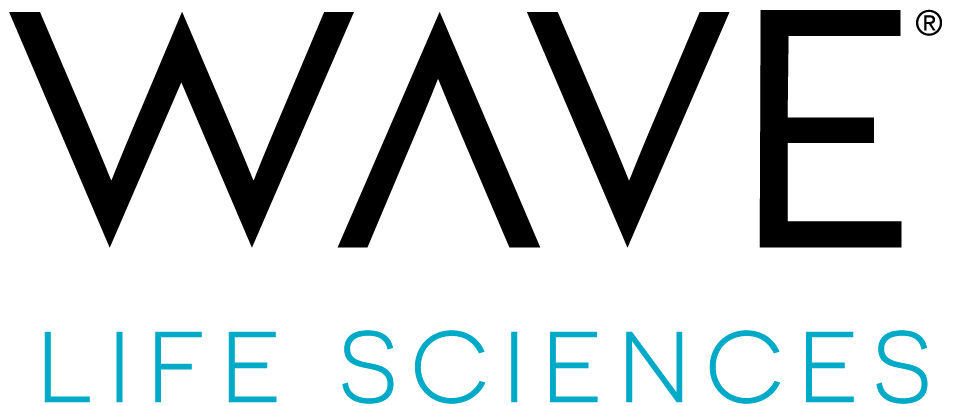Wave Life Sciences

🇸🇬Singapore
- Country
- 🇸🇬Singapore
- Ownership
- Public
- Established
- 2012-01-01
- Employees
- 268
- Market Cap
- $704.7M
- Introduction
Wave Life Sciences Ltd. is a clinical-stage biotechnology company, which focuses on developing its proprietary RNA medicines platform and PRISM. It also develop and commercialize a pipeline RNA medicines in a variety of therapeutic areas. The company was founded by Gregory L. Verdine and Takeshi Wada on July 23, 2012 and is headquartered in Singapore.
Wave Life Sciences Advances Novel Obesity Drug WVE-007 Targeting INHBE Gene
Wave Life Sciences submitted its first clinical trial application for WVE-007, an obesity treatment using siRNA to silence INHBE, aiming for sustainable weight loss through fat burning while maintaining muscle mass, with potential for once or twice-annual dosing. Clinical trials are expected to begin in Q1 2025.
10 biotech companies to watch in 2025
10 biotech companies to watch in 2025: Anavex Life Sciences (blarcamesine for neurodegenerative diseases), Candid Therapeutics (T cell engager antibodies for autoimmune diseases), Enterprise Therapeutics (ETD001 for cystic fibrosis), Jazz Pharmaceuticals (Ziihera for biliary tract cancer), Life Biosciences (ER-100 for optic neuropathies), Ovid Therapeutics (OV888 for cerebral cavernous malformation), Skye Bioscience (nimacimab for obesity), TG Therapeutics (Briumvi for multiple sclerosis), Wave Life Sciences (WVE-006 for alpha-1 antitrypsin deficiency), and Quotient Therapeutics (somatic genomics platform for drug discovery).
Up 152% in December, Is uniQure a Good Stock to Buy Now and Hold Through 2025?
uniQure's stock surged due to FDA's willingness to review AMT-130, a Huntington's disease gene therapy. Despite challenges, AMT-130 shows potential, with strong evidence of slowing disease progression. The stock's modest market cap could increase significantly if AMT-130 is approved, making it a high-risk, high-reward investment.
UniQure Clears Path to Accelerated Approval for Huntington's Gene Therapy
UniQure aligned with FDA on accelerated approval pathway for Huntington’s disease gene therapy AMT-130, using Phase I/II studies and composite Unified Huntington’s Disease Rating Scale as primary basis for Biologics License Application (BLA).
Going boldly: First person treated in Phase 1 clinical trial by Alnylam Pharmaceuticals
Alnylam Pharmaceuticals launched a Phase 1 trial for ALN-HTT02, a huntingtin-lowering drug for Huntington’s disease, using RNA interference. The trial aims to assess safety and efficacy, with recruitment currently open in the UK and Canada. Participants, aged 25-70, will receive spinal injections of ALN-HTT02 or a placebo, with the option to switch to the drug after 12 months.
Related Clinical Trials:
Korro Bio to Begin RNA-Editing Trial in Alpha-1 Antitrypsin Deficiency
Korro Bio received approval for a Phase 1/2a trial of KRRO-110, an RNA-editing therapy for alpha-1 antitrypsin deficiency (AATD), targeting the PiZ mutation in SERPINA1. KRRO-110 aims to correct the mutation using an RNA-editing enzyme, ADAR, encapsulated in a lipid nanoparticle, with preclinical data showing sustained editing efficiency and increased AAT protein levels. The REWRITE trial will evaluate safety and tolerability in healthy adults and AATD patients, with dosing expected in Q1 2025.
Novartis wagers billions of dollars on PTC Huntington's drug
Novartis to pay up to $3 billion for PTC Therapeutics' experimental Huntington's disease drug, PTC518, in a deal that includes $1 billion upfront and potential milestone payments of $1.9 billion. The agreement reflects Novartis' commitment to neurodegenerative disease research and PTC's focus on RNA splicing therapies.
Artificial Intelligence (AI) In Clinical Trials Market Report
The AI in clinical trials market is projected to grow from $1.52 billion in 2023 to $4.86 billion by 2028, driven by personalized medicine, real-time monitoring, and AI-driven patient recruitment. Key trends include adaptive trial design and NLP in data analysis. Market growth is fueled by the need to reduce clinical trial costs and innovative product offerings.
Six antisense oligonucleotide companies shaping the future of genetic medicine
Six companies—Ionis Pharmaceuticals, Isarna Therapeutics, Regulus Therapeutics, Sarepta Therapeutics, Secarna Pharmaceuticals, and Wave Life Sciences—are leading in the development of antisense oligonucleotides, a targeted treatment for various diseases. Ionis, a pioneer with over 40 drugs in its pipeline, recently priced a $500 million IPO. Isarna's ISTH0036 targets TGF-β for ophthalmic conditions. Regulus focuses on microRNA targeting with its lead candidate RGLS8429 for ADPKD. Sarepta has three approved PPMO therapies for DMD and a recent $1 billion deal with Arrowhead Pharmaceuticals. Secarna's SECN-15 targets NRP1 for oncology. Wave Life Sciences' WVE-003, for Huntington's disease, recently reported positive phase 1b/2a trial results. The antisense oligonucleotide market is projected to grow to $5,519 million by 2033.
Huntington's disease: a therapeutic field on a bumpy ride
Huntington's disease treatments face challenges due to rarity and trial failures, but recent milestones like Wave's WVE-003, Roche-Ionis' tominersen, uniQure's AMT-130, and PTC Therapeutics' PTC518 offer hope. Prilenia's pridopidine is under EMA review, while Annexon's ANX005 and Sage's dalzanemdor faced setbacks. Despite these, cautious optimism remains for effective treatments.
© Copyright 2025. All Rights Reserved by MedPath
